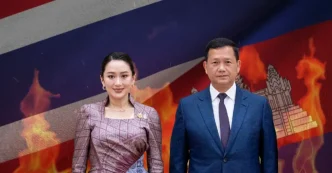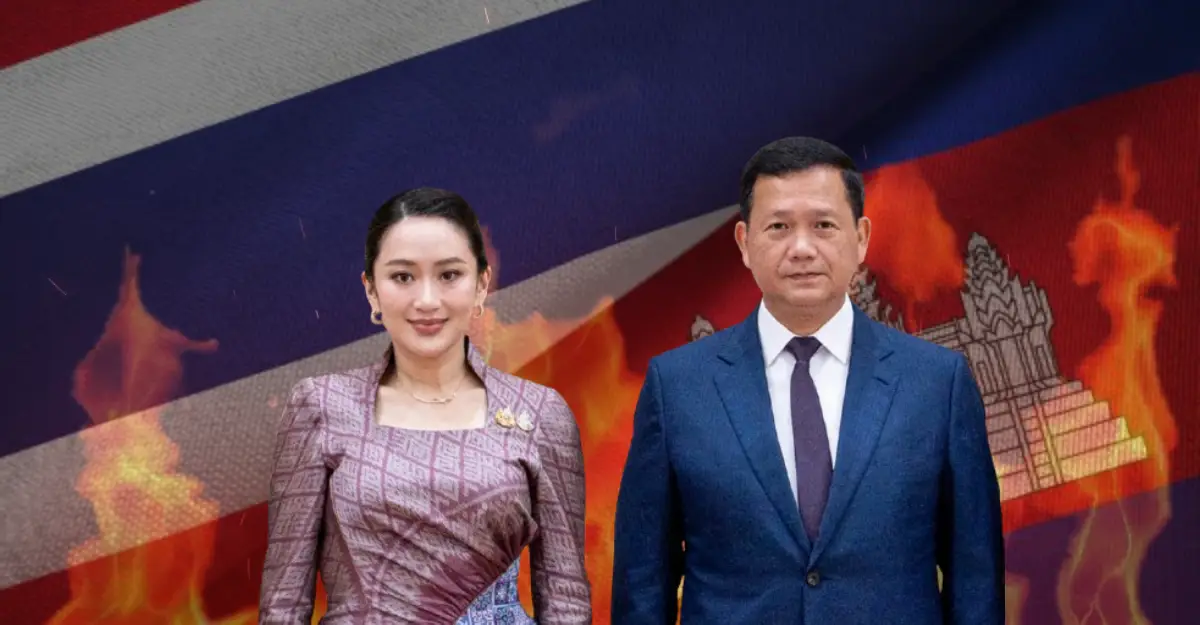A simmering dispute at the Thai-Cambodian border has flared into a war of words, with Cambodia’s Interior Minister Sar Sokha accusing Thai authorities of deception and insincerity over border policies. The minister’s sharp criticism, aired through a social media statement on June 25, 2025, comes amid escalating tensions following the killing of a Cambodian soldier in late May and ongoing restrictions at border crossings. As both nations trade accusations, the situation risks further straining an already fragile relationship, raising concerns about regional stability in Southeast Asia.
Border Closures and Contradictory Claims
The crux of the current dispute lies in conflicting narratives over border access. According to Sar Sokha, Thailand has publicly claimed to have reopened all border gates while simultaneously barring public crossings—a contradiction he labeled as a “dramatic act” designed to portray Thailand as a victim. In his statement, Sokha questioned the logic behind such actions, asking, “Thailand claims to have opened border gates but does not allow public crossings. What kind of behaviour is this?” He further suggested that these tactics aim to mislead both the Thai public and the international community, casting doubt on Thailand’s commitment to resolving the issue.
Sokha urged Thai officials to issue a clear public announcement confirming the full resumption of border operations if their claims of reopening are genuine. He referenced past unilateral closures by Thailand, implying a pattern of inconsistent policy that continues to frustrate Cambodian authorities. Currently, border crossings remain heavily restricted, with exceptions made only for school students and medical patients, a situation that has disrupted trade, travel, and local livelihoods on both sides.
A Deadly Incident Fuels Tensions
The immediate trigger for the latest round of tensions dates back to May 28, 2025, when a Cambodian soldier was killed in a pre-dawn ambush by Thai forces in the Mum Bei area of Preah Vihear province, a historically contested region. Sar Sokha described the incident as a “despicable act” and accused the Thai government, military, and even opposition groups of distorting facts to downplay the event. He alleged that Thailand’s response has been an attempt to obscure internal political divisions and the fragility of its current administration, using the border issue as a distraction.
The Preah Vihear area has long been a flashpoint between the two nations, with overlapping territorial claims and a history of violent clashes, most notably in 2008-2011 over the Preah Vihear Temple, a UNESCO World Heritage site. While the International Court of Justice ruled in 1962 that the temple belongs to Cambodia, disputes over surrounding land persist, often exacerbated by domestic political pressures in both countries. The killing of the Cambodian soldier has reignited these longstanding grievances, with Cambodia viewing it as a deliberate provocation.
Allegations of Deception and International Perception
Sar Sokha’s statement went beyond border policies, accusing Thailand of spreading “false” information to the global audience about the ongoing disputes. He suggested that the Cambodian government and its people are closely monitoring what he termed a “Thai drama,” implying orchestrated efforts to manipulate public perception. “The international community is likely growing weary of Thailand’s actions” he stated, reflecting a belief that such tactics are losing credibility on the world stage.
While Cambodia’s position is clear, Thailand has yet to officially respond to these specific accusations as of the latest updates. However, Thai authorities have previously denied closing borders outright, instead framing restrictions as security measures. Reports of Thai army protests against a suspected incursion by a Cambodian drone in Chanthaburi province indicate that mistrust runs deep on both sides, with each nation perceiving the other as the aggressor.
Analysts note that such public rhetoric from a high-ranking official like Sar Sokha signals a hardening of Cambodia’s stance. Dr. Sopheak Meas, a regional security expert based in Phnom Penh, told this correspondent that the interior minister’s language suggests Cambodia may be preparing to escalate diplomatic efforts. “This isn’t just frustration; it’s a call for accountability. If unaddressed, we could see Cambodia push for international mediation or raise the issue at ASEAN forums” he said.
Regional Implications and Economic Fallout
The Thai-Cambodian border dispute extends beyond bilateral relations, carrying potential implications for the broader ASEAN region. Both countries are members of the Association of Southeast Asian Nations, which prioritizes unity and non-interference but has often struggled to mediate internal conflicts. The border issue, if unresolved, could complicate regional cooperation on issues like trade, migration, and security, especially as ASEAN seeks to project stability amid global economic challenges.
Economically, the border restrictions are already taking a toll. Cross-border trade, a lifeline for communities in provinces like Preah Vihear and Thailand’s eastern regions, has plummeted. Local merchants report losses running into millions of Thai Baht and Cambodian Riel, with goods unable to reach markets. For instance, a Cambodian trader in Preah Vihear, who requested anonymity due to the sensitivity of the situation, estimated losses of around 4 million Riel (US$980) in the past month alone due to stalled exports of agricultural produce. “We can’t move anything across, and no one knows when this will end” he lamented.
Tourism, another key sector, has also been hit hard. The Preah Vihear Temple, a major draw for international visitors, has seen a sharp decline in footfall as travelers avoid the tense border zone. Thai resorts near crossing points report cancellations, with some operators estimating revenue drops of up to 30% since the restrictions began. The economic ripple effects underscore the urgency of finding a resolution, even as political rhetoric continues to dominate the discourse.
Historical Context and Domestic Pressures
To understand the depth of the current crisis, one must consider the historical and political backdrop. The Thai-Cambodian border has been a perennial source of friction, rooted in colonial-era demarcations and nationalist sentiments on both sides. The 2008-2011 clashes over Preah Vihear resulted in dozens of deaths and displaced thousands, leaving a legacy of mutual suspicion. While diplomatic efforts, including ASEAN-brokered talks, have periodically eased tensions, flare-ups remain common, often tied to domestic political cycles.
In Thailand, border issues frequently become fodder for political maneuvering. With the Thai government facing criticism over economic performance and governance, some observers suggest that a hardline stance on Cambodia serves as a unifying nationalist cause. Conversely, in Cambodia, the ruling Cambodian People’s Party (CPP) has historically leveraged border disputes to rally domestic support, framing itself as a defender of national sovereignty against external threats.
Sar Sokha’s outspoken comments may thus reflect not only genuine policy concerns but also an appeal to Cambodian public sentiment. With elections on the horizon in 2028, the government may see value in projecting strength on border security. However, without concrete evidence to substantiate claims of Thai deception or internal fragility, such rhetoric risks inflaming tensions rather than fostering dialogue.
Path Forward Amid Uncertainty
As accusations fly and border crossings remain shuttered, the path to de-escalation appears uncertain. Cambodia’s call for a public statement from Thailand on border reopenings could serve as a starting point, but mutual distrust complicates even basic communication. International observers, including ASEAN partners, may need to step in to facilitate dialogue, though past interventions have yielded mixed results.
For now, communities on both sides of the border bear the brunt of the standoff, caught between political posturing and practical hardships. Reports of Thai army actions against perceived Cambodian incursions, such as the drone incident in Chanthaburi, suggest that military encounters could further escalate the situation if not addressed through diplomatic channels.
The killing of the Cambodian soldier in May remains a raw wound, with Cambodia seeking accountability and Thailand yet to fully address the incident in public statements. Until both sides commit to transparency and restraint, the border dispute risks spiraling into a broader conflict, with consequences that could reverberate across Southeast Asia. As the region watches, the question looms: will dialogue prevail over division, or will history repeat itself in yet another cycle of confrontation?















